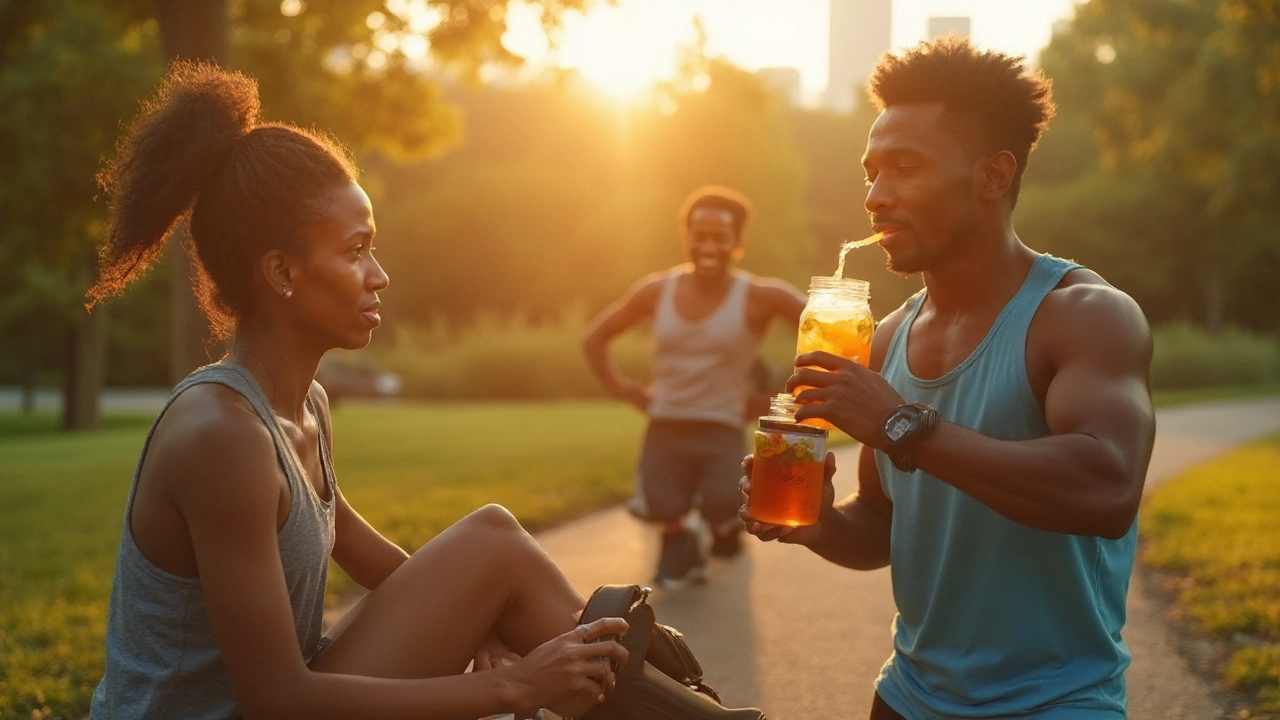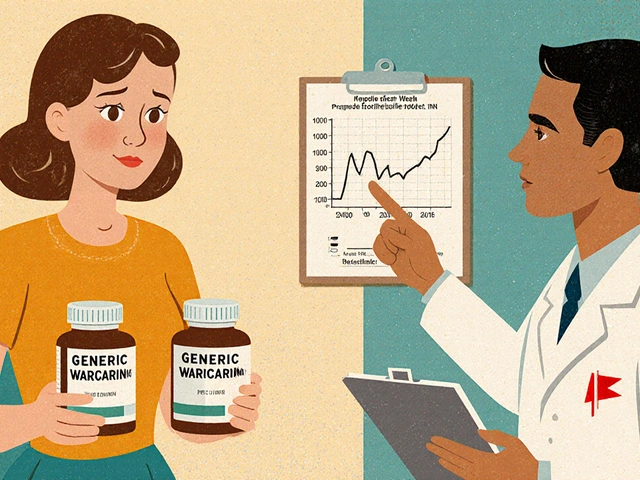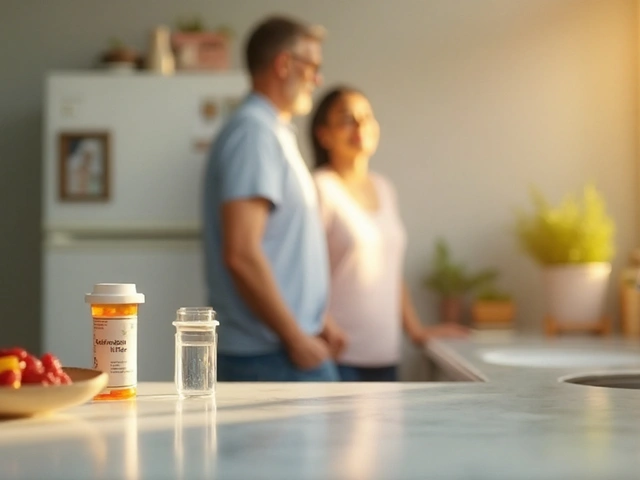Lemon Verbena Benefits: Evidence, Dosage, Safety, and Smart Ways to Use It
If you want a simple habit that can help you sleep better, ease stress, support digestion, and bounce back faster after workouts, lemon verbena belongs on your shortlist. It’s a citrusy herb (Aloysia citrodora) people have used for centuries as a calming tea and, more recently, as a standardized supplement. The upside is real but not magical: small human trials show promise for sleep and muscle recovery, plus one well-designed study found a hibiscus-lemon verbena combo can support weight management. You’ll get the most from it when you match the form and dose to your goal and watch for a few safety notes.
- lemon verbena benefits you can actually expect: calmer mood, better sleep quality, gentler digestion, less post-workout soreness, antioxidant support.
- Dose basics: tea (1-2 g dried leaf per cup, 1-3 cups/day) or extract (typically 400-600 mg/day standardized to verbascoside).
- Best use-cases: evening wind-down, recovery after training, a light aid for tummy discomfort; weight support appears in blends with hibiscus.
- Safety: usually well tolerated; avoid in pregnancy/breastfeeding, active kidney disease, and stop before surgery. Check meds with your clinician.
- Quality tip: look for the Latin name Aloysia citrodora (aka Lippia citriodora) and third-party testing; don’t ingest the essential oil.
What Lemon Verbena Is, What It Can Do, and How Strong the Evidence Is
Lemon verbena is a fragrant Mediterranean shrub. The dried leaves make a bright, lemony tea. Supplement makers concentrate its polyphenols-especially verbascoside, plus luteolin and quercetin derivatives-into capsules standardized for consistency. In the spice aisle you’ll also see “lemon balm” (Melissa officinalis) and “vervain/blue vervain” (Verbena officinalis). Those are different plants with different research. For supplements, confirm the Latin name: Aloysia citrodora (you’ll also see Lippia citrodora on older labels).
So, what benefits are actually backed by human data? Here’s the quick tour, with what we know-and what we don’t.
Muscle recovery after hard exercise: A randomized, double-blind, placebo-controlled human trial on healthy adults doing intense training found lemon verbena extract lowered markers of muscle damage (like creatine kinase), reduced perceived soreness, and helped strength recover faster. The extract used was standardized for verbascoside and taken daily for several weeks around training. The study appeared in a peer-reviewed sports nutrition journal and has been replicated with similar outcomes in trained individuals. If you lift, run, or cycle hard, this is the most reliable modern use.
Sleep quality and stress: Small double-blind trials using standardized lemon verbena extracts have shown improvements on validated sleep scales (like the Pittsburgh Sleep Quality Index), with people falling asleep a bit faster and waking less often. Effects are modest but meaningful for light to moderate sleep troubles. Mechanistically, polyphenols in lemon verbena may modulate GABAergic pathways and quiet inflammation that disrupts sleep. These are early studies with small sample sizes, so keep expectations steady, but they’re promising.
Weight management (in blends): A hibiscus-lemon verbena polyphenol combo (often sold under a branded name) has been tested in overweight adults in a randomized, placebo-controlled trial and published in a nutrition journal. Over 8-12 weeks, the blend improved satiety and helped reduce weight and waist circumference alongside lifestyle guidance. Important nuance: that effect was shown with the combination, not lemon verbena alone. If weight support is your goal, look specifically for the studied combo and pair it with diet and activity changes.
Digestive comfort: Lemon verbena tea has a long track record as a gentle after-meal soother. Human data are thinner here, but traditional use and the plant’s antispasmodic activity make it a reasonable option for mild bloating or post-meal queasiness. I like it after a heavier dinner or when I’ve rushed meals.
Antioxidant and anti-inflammatory support: In exercise studies, lemon verbena extract improved antioxidant status and dampened inflammatory signaling after muscle-damaging sessions. Lab research shows verbascoside scavenges free radicals and moderates NF-κB pathways. Translated: it helps your system handle stress a bit better, especially the kind you get from training.
What it likely doesn’t do: It’s not a cure for anxiety, depression, IBS, thyroid issues, or chronic pain. You’ll see blogs promising big leaps here. The human evidence isn’t there. If any of those are your main concerns, talk to a clinician and use lemon verbena, at most, as a supporting player.
How fast will you feel it? For sleep, some people notice calmer evenings within the first week. For muscle recovery, give it 2-4 weeks of consistent use around training blocks. For weight blends, think in 8-12 week horizons with daily consistency. For digestion, tea can help the same day.
| Benefit | Evidence in Humans | Typical Use/Dose | Timeframe | Notes / Source |
|---|---|---|---|---|
| Muscle recovery | Randomized, double-blind trial showed reduced soreness and CK | Extract 400-600 mg/day (standardized to verbascoside) | 2-4 weeks | Peer-reviewed sports nutrition research; trained adults |
| Sleep quality | Small double-blind trials improved PSQI scores | Extract 300-400 mg in the evening; or tea 1 cup after dinner | 1-2 weeks | Modest but meaningful effect; early evidence |
| Weight management (blend) | Randomized, placebo-controlled trial with hibiscus blend | Standardized combo 500-1000 mg/day | 8-12 weeks | Effect shown for blend, not verbena alone |
| Digestive comfort | Traditional use; limited modern trials | Tea: 1-2 g dried leaf per cup, after meals | Same day | Often paired with mint or ginger |
| Antioxidant support | Exercise trials show improved antioxidant markers | Extract 400-600 mg/day | 2-4 weeks | Correlates with less post-exercise soreness |
Where the evidence comes from: sports nutrition trials in healthy adults; small clinical studies on sleep; a branded combo trial published in a mainstream nutrition journal for weight; lab and animal work on mechanisms. Credible places you’ll see these published include Phytotherapy Research, Nutrients, and sports nutrition journals. If you like reading studies, search those terms along with “Lippia citriodora” or “Aloysia citrodora.”

How to Use It: Doses, Forms, Quality, and Safety
Start by picking your form based on your goal, your budget, and how you like to take herbs. Here’s how I guide friends and clients.
- Goal = sleep and stress relief: Evening tea or a standardized extract 60-90 minutes before bed.
- Goal = recovery from training: Standardized extract daily for the length of your training block; tea is fine as a bonus but likely too low-dose alone.
- Goal = gentle digestion: Tea after meals; blend with ginger or peppermint if you like.
- Goal = weight support: Look for the hibiscus-lemon verbena blend used in trials; use alongside diet and step count goals.
Tea (dried leaf):
- How: Use 1-2 grams (about 1-2 teaspoons) dried leaf per 8 oz hot water. Steep 5-10 minutes. It’s naturally caffeine-free. Sweeten or add a lemon slice if you like.
- When: After dinner for sleep; after meals for digestion; iced in the afternoon when it’s blazing hot (Austin summers… say no more).
- How much: 1-3 cups per day is a common, gentle range.
Standardized extract (capsules or powder):
- Look for: Standardized verbascoside content (often 15-30%). The label should list the plant as Aloysia citrodora or Lippia citriodora.
- Typical dose: 400-600 mg/day for recovery and antioxidant support; 300-400 mg in the evening for sleep. Follow your product’s serving size.
- Timing: With food if you get heartburn; 60-90 minutes pre-bed for sleep. For training, daily timing matters less than consistency.
Liquid extracts/tinctures:
- Common strength is 1:5 (herb:solvent). Typical adult dose is 2-4 mL up to three times daily. Start low to test tolerance.
- Good option if you don’t like capsules and want flexible dosing. Mix into water or tea.
Quality checklist (buying tips):
- The Latin name must say Aloysia citrodora or Lippia citriodora. If it just says “verbena,” skip it-it might be a different species.
- Pick brands with third-party testing seals (USP, NSF, Informed Choice, BSCG) or a clear certificate of analysis on request.
- Avoid “miracle” weight-loss claims. Legit products sound boringly specific.
- For tea, choose vibrant, lemony-smelling leaves. Stale leaf smells dull. Store airtight, away from light and heat.
- Do not ingest lemon verbena essential oil. That’s for aromatherapy or diluted topical use, not for your mug.
Safety and interactions:
- Common side effects: mild stomach upset or heartburn if you take strong extracts on an empty stomach.
- Pregnancy and breastfeeding: skip it-there isn’t enough safety data.
- Kidney disease: avoid; herbal texts caution against internal use with active kidney issues.
- Before surgery: stop 2 weeks prior (standard precaution with botanicals).
- Medications: If you take blood thinners, blood pressure or diabetes meds, or sedatives, check with your clinician. Herbs that calm or lightly affect metabolism can amplify drug effects.
- Allergies: rare, but if you react to other Verbenaceae plants, proceed carefully.
Simple rules of thumb:
- Use tea for light, daily support; use standardized extract for targeted outcomes like recovery or sleep.
- Start low, go slow. Give it 2 weeks before judging.
- Change one thing at a time. If you add lemon verbena, keep other supplements steady so you can tell what’s doing what.

Make It Work in Real Life: Routines, Recipes, FAQs, and Next Steps
Here’s how to build lemon verbena into a normal week without turning your kitchen into a lab.
Evening wind-down plan (sleep focus):
- Shut down screens 60 minutes before bed (blue light kills melatonin).
- Brew 1 cup lemon verbena tea. Add a 1-inch slice of ginger if you want a little warmth.
- If you prefer capsules, take your lemon verbena extract 60-90 minutes before bed. Many folks pair it with magnesium glycinate (100-200 mg).
- Low lights, light stretch, two slow breaths-tell your nervous system it’s safe to power down.
Post-workout recovery (lifting or intervals):
- Hydrate, hit 25-35 g protein within 1-2 hours, and add carbs to refill glycogen.
- Take your extract dose with the meal. If you use tea instead, sip it with dinner.
- Optional stack: tart cherry at night for extra soreness support, plus 7-9 hours of sleep.
- Track: rate your soreness next-morning 0-10, and log lifts or wattage. Look for steadier recovery by week 2-3.
After-meal digestive helper:
- Steep 1 teaspoon lemon verbena with 1 teaspoon peppermint for 6-8 minutes.
- Sip warm. If dairy upsets you, try this after meals that include it.
- Note bloat, gas, and comfort for a week. Keep what helps.
Hot-day iced tea (Austin-approved): Brew triple-strength lemon verbena (3 teaspoons in 8 oz), cool, then pour over a tall glass of ice with a splash of sparkling water and a squeeze of lime. Tastes like summer without caffeine.
Buying checklist you can screenshot:
- Latin name: Aloysia citrodora (Lippia citrodora) on the label.
- Standardized verbascoside content listed (e.g., 15-30%).
- Third-party tested or a batch COA available.
- Clear dose instructions and no miracle claims.
- Expiration date and a lot number.
Common pitfalls to avoid:
- Confusing lemon verbena with lemon balm or “vervain.” Different plants, different data.
- Expecting weight loss from lemon verbena alone. The weight study used a specific hibiscus combo, plus lifestyle.
- Drinking the essential oil. Not safe internally.
- Judging results after two nights. Give sleep and recovery a couple of weeks.
Mini‑FAQ:
- Can lemon verbena help me sleep? Yes, modestly. Small randomized trials show better sleep quality scores. It’s not a sedative hammer, but it helps take the edge off.
- Is the tea caffeine-free? Yes. Great for evenings.
- Will it help me lose weight? The best evidence is for a hibiscus-lemon verbena blend in overweight adults over 8-12 weeks. Lemon verbena alone hasn’t shown the same effect.
- Is it good for anxiety? It may help you feel calmer, especially as tea in a relaxing routine. There aren’t strong trials for clinical anxiety disorders.
- What about IBS? Some folks like it after meals. There isn’t solid IBS-specific data. Start with tea and see how you feel.
- How long until I notice anything? Sleep: 1-2 weeks. Recovery: 2-4 weeks. Digestion: same day. Weight blends: 8-12 weeks.
- Can I use it with coffee? Sure. Just keep lemon verbena for later in the day if sleep is your goal.
- Is the essential oil safe to ingest? No. Stick to tea, capsules, or liquid extracts designed for internal use.
- Kids? Ask a pediatric clinician first. Doses aren’t well defined for children.
- Pregnancy or nursing? Skip for now-safety data aren’t strong enough.
Quick comparison with similar herbs:
- Lemon verbena vs. lemon balm: Lemon balm has stronger human data for stress and mild anxiety; lemon verbena has better data for exercise recovery.
- Lemon verbena vs. vervain (blue vervain): Often confused. Vervain has a more bitter taste and different traditional uses. If the label doesn’t list Aloysia/Lippia citrodora, it’s not lemon verbena.
Decision guide (choose your form fast):
- I want better sleep and I like rituals → Tea at night, optionally add a low-dose extract.
- I train hard and feel beat up → Standardized extract daily for 4-8 weeks.
- My stomach gets touchy after meals → Tea after lunch/dinner.
- I’m chasing weight loss → Consider the hibiscus-verbena combo used in trials, plus a calorie plan and step goal.
What “working” looks like:
- Sleep: shorter time to fall asleep, fewer wake-ups, less tossing.
- Recovery: lower soreness scores, steadier strength between sessions.
- Digestion: less post‑meal bloat and discomfort.
- Weight blend: trending down waist circumference over 2-3 months.
Next steps:
- Pick your goal (sleep, recovery, digestion, weight blend).
- Choose your form (tea vs. standardized extract; blend if weight is the target).
- Set a simple tracking metric: PSQI or a sleep app score, 0-10 soreness, weekly waist measure, or a 1-5 digestion comfort rating.
- Run a 2-4 week test (sleep/recovery/digestion) or 8-12 weeks (weight blend). Don’t change five other things at once.
- Review. If you see no change, adjust dose/timing or move on. No supplement works for everyone.
Troubleshooting:
- It upset my stomach: Take with food, switch to tea, or lower the extract dose. If it persists, stop.
- No change after 3 weeks: Confirm you bought the right herb (Aloysia citrodora), check standardization, and verify your goal matches the evidence. Consider pairing sleep use with better sleep hygiene or pairing recovery use with adequate protein and sleep.
- Flavor is too strong: Blend tea with peppermint or lemon peel, or ice it and dilute with sparkling water.
- I’m on medications: Pause and ask your clinician or pharmacist. Bring the bottle so they can check ingredients and dose.
Why this approach works: You’re matching the best-studied form and dose to a specific job-sleep, recovery, digestion, or weight blend-and giving it enough time to show a real effect. You’re choosing quality, avoiding common mistakes, and tracking outcomes so you’re not guessing. That’s how you separate a smart herbal habit from expensive kitchen decor.
One last tip from the Texas heat: keep a cold pitcher of lemon verbena tea in the fridge. On those 100-degree days, it’s the easiest way to get the herb in, stay hydrated, and keep your evenings calm without caffeine.







10 Comments
Tim Ferguson
September 2, 2025 at 11:31
When you stare at a leaf and think it’s ancient wisdom, you might feel a spark of truth, but that spark can also be a cheap illusion. The herb’s scent is nice, the science is modest, and the hype often oversteps the data. It’s a calm habit, not a miracle cure, and that difference matters if you’re chasing real results. So sip the tea, track your sleep, and keep the expectations in check.
Noah Cokelaere
September 4, 2025 at 05:11
Oh sure, another “herbal hack” – just what the world needed, right? But hey, if a citrusy cup can shave a few minutes off your bedtime routine, I’m all for this low‑effort experiment. Grab a mug, set a timer, and let the chill vibes do their thing.
Ashley Helton
September 5, 2025 at 22:51
Honestly, the data on lemon verbena is as breezy as its aroma – not groundbreaking, but pleasantly helpful for a few folks. It’s great for winding down, and the tea tastes like a mini vacation after a long day. Just don’t expect it to replace a solid sleep hygiene routine.
Brian Jones
September 7, 2025 at 16:31
Exactly!; the herb offers a modest lift,; the science backs mild sleep improvement,; and the recovery angle is backed by a well‑run trial,; so you’re not just drinking folklore, you’re sipping a data‑supported brew!!
Carlise Pretorius
September 9, 2025 at 10:11
i think its cool but u need to check the label for aloysia citrodora dont grab any old verbena leaf its not the same thing
Johnson Elijah
September 11, 2025 at 03:51
Right on, Carlise! 👍 Make sure the bottle says Aloysia citrodora and has a third‑party seal – that’s the safe route. And if you’re mixing it into a post‑workout shake, go for the standardized extract, not the essential oil. 🌿💪
Roxanne Lemire
September 12, 2025 at 21:31
I guess it could help some people.
Alex Mitchell
September 14, 2025 at 15:11
Sure thing! :) Just start low, see if your stomach’s okay, and keep a note of how you feel – that way you’ll know if it’s a win or a miss.
Narayan Iyer
September 16, 2025 at 08:51
Alright, let’s unpack the whole lemon verbena proposition with a bit of nerd‑fuel. First, the phytochemicals – verbascoside, luteolin, quercetin – are legit antioxidants that can modulate oxidative stress pathways, which is why the sport‑science community gave it a nod for post‑exercise recovery. Second, the human trials, albeit small, showed modest reductions in creatine kinase and perceived muscle soreness; that’s not a miracle, but it’s statistically measurable, which matters for evidence‑based supplementation. Third, the sleep data: randomized double‑blind studies reported a 0.5‑to‑1‑point improvement on the PSQI, translating to faster sleep onset and fewer nocturnal awakenings – again, modest but consistent across trials. Fourth, the weight‑management angle hinges on a hibiscus‑verbena blend, not the pure herb, so you’d need that specific formulation to claim any impact on satiety or waist circumference. Fifth, the safety profile is clean for most adults, but the usual caveats apply – avoid during pregnancy, lactation, serious kidney disease, and discontinue prior to surgery due to potential mild anticoagulant effects. Sixth, quality control is paramount: look for the Latin name Aloysia citrodora (or Lippia citriodora on older labels) plus a third‑party COA confirming standardization to ≥15 % verbascoside. Seventh, dosing windows matter – 300‑400 mg of extract in the evening for sleep, 400‑600 mg spread across the day for recovery, and 1‑2 g of dried leaf per cup for digestive comfort. Eighth, if you’re a caffeine‑sensitive night‑owl, the tea is naturally caffeine‑free, making it a safe bedtime ritual. Ninth, the integration into daily routines can be as simple as an iced tea on a hot day or as layered as a pre‑workout stack with tart cherry and magnesium. Tenth, tracking is essential – use a sleep app, soreness rating, or waist measurements to objectively gauge any changes over a 2‑4‑week window for sleep/recovery or 8‑12 weeks for the blend. Eleventh, don’t expect it to replace core lifestyle pillars: adequate protein, consistent sleep hygiene, and progressive overload in training remain the primary drivers of performance and body composition. Twelfth, if you experience gastrointestinal upset, switch to tea or take the extract with food; the herb is generally well tolerated. Thirteenth, the cost‑to‑benefit ratio is favorable compared to many proprietary performance supplements, provided you source a reputable brand. Fourteenth, the herb’s aromatic profile also makes it a pleasant addition to culinary dishes – think lemon‑verbena infused vinaigrette for a fresh finish. Finally, the bottom line: lemon verbena is a modestly effective, low‑risk adjunct for sleep quality, mild anti‑inflammatory support, and post‑exercise recovery, but its weight‑loss claims are only substantiated in a specific blend. Use it wisely, track outcomes, and keep expectations realistic.
Amanda Jennings
September 18, 2025 at 02:31
Wow, that’s a solid deep‑dive, Narayan! 🙌 If you’re giving it a try, start with the evening tea for sleep and log your scores – the data will tell you if it’s worth the routine. And don’t forget to stay hydrated; the herb works best when your body’s got enough water.